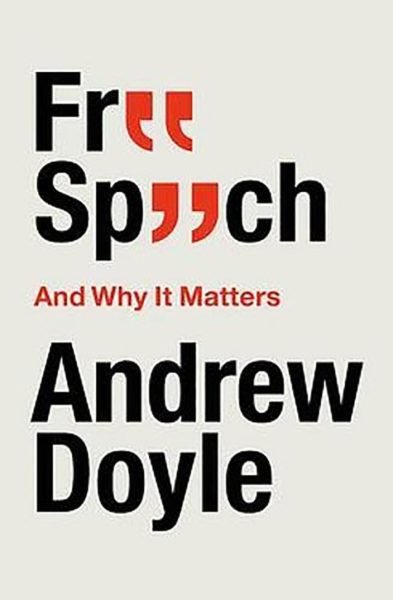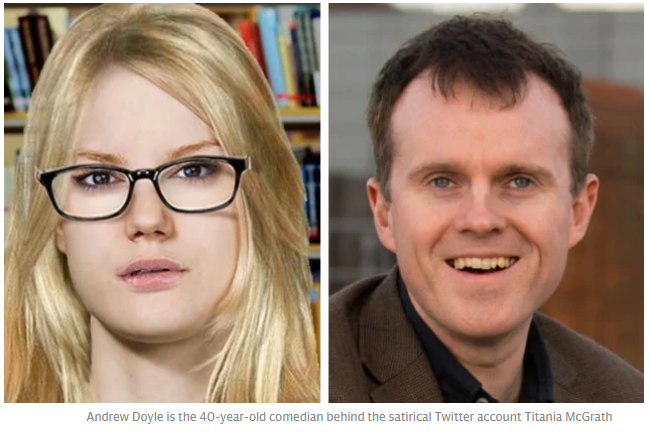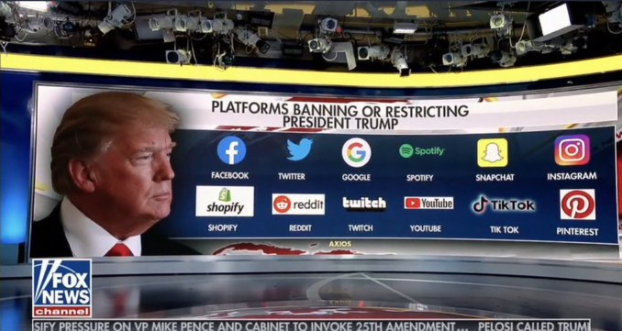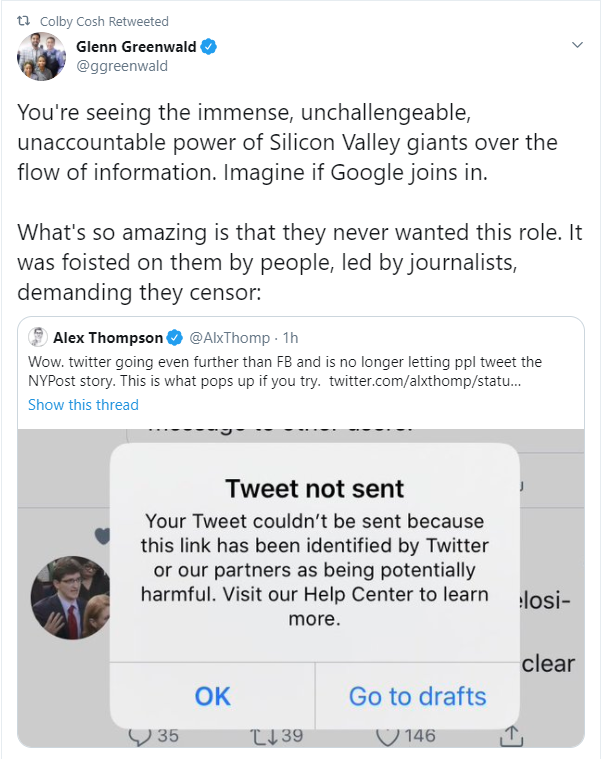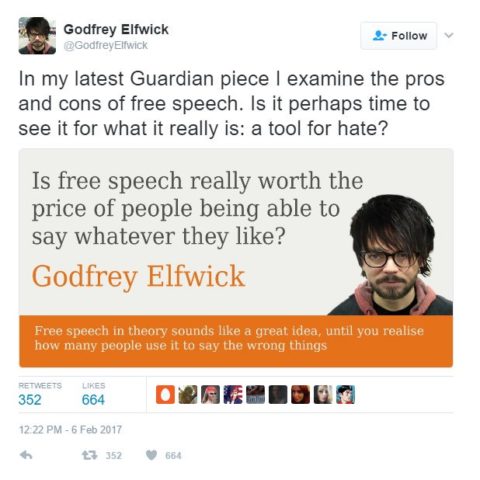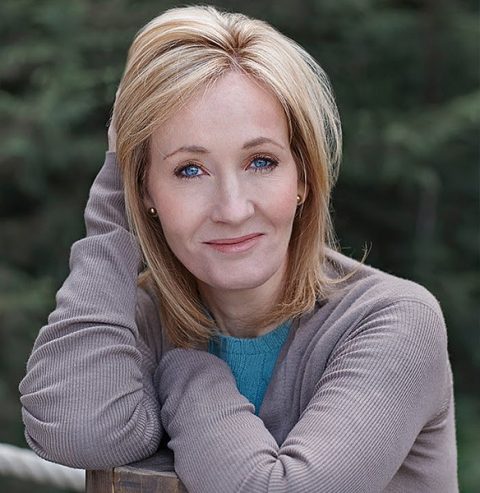One of the phrases in the mouth of managers or bureaucrats that indicates almost unfailingly that they are about to commit an act of betrayal is, “We believe passionately in.”
The only thing that most managers or bureaucrats believe in passionately is their career, in the broad sense of that term: for they are quite willing to abandon or sacrifice a career completely in the narrow sense if it is in the interest of their career in a broader sense.
I learned this in the hospitals in which I worked. As soon as a hospital manager said “I believe passionately in the work that Department X has been doing,” I knew that Department X was about to be closed down by that very same manager.
Thus, when I read that a publisher claimed that “We believe passionately in freedom of speech,” I knew at once that the publisher was about to withdraw a book from publication that it had previously advertised for publication.
Theodore Dalrymple, “‘Passionate’ Belief in Freedom of Speech and Multiplying Orthodoxies”, New English Review, 2020-12-22.
April 16, 2021
QotD: “Declaring passionate belief in freedom of speech”
April 8, 2021
Andrew Doyle defends freedom of speech in his new book
In The Critic, Simon Evans reviews Free Speech And Why It Matters by Andrew Doyle (who is perhaps best known on this side of the pond for his ultrawoke Twitter persona “Titania McGrath”):
When I am weaker than you, I ask you for Freedom, because that is according to your principles; when I am Stronger than you, I take away your freedom because that is according to my principles.
Frank Herbert, Children of DuneIt is most peculiar. If the counter-culture had a dominant theme, it was the right to criticise the establishment and to question orthodoxy of all kinds. Back in the Sixties, it was central to its mission to Expand your Consciousness, man. And it worked. Walls came tumbling down. Yet now, everywhere you look, it seems the elements of society — students, academics, comedians — that one would most naturally associate with that freedom of expression, are introducing caveats and qualifiers to that principle faster than you can cry “Stop Little Pol-Pot, Stop!” They are turning, before our very eyes, into actual scolds.
It must be supposed that what was once the siege army, camped outside the moat like Occupy Wall Street, has captured the castle, for they are demanding that the walls be re-erected. That “hate” speech be distinguished from free speech and dealt with accordingly. That freedom of speech need not mean freedom from consequences. And a general suspicion is at large, among the young, that free speech is some sort of artefact of complacent boomer self-indulgence, like Steely Dan and second homes. No longer counter-culture, but decidedly counter-revolutionary.
I’m a comedian, and these have been strange times for our trade. Brexit saw comedians side with the mirthless neo-liberal consensus, against the humorous, sceptical grumble of the common rabble. The same thing happened in America, with bar-room stand-ups horrified by the vulgarity of Trump. And now the latest revision sees many of my fellow jesters and fools unsure whether people can really be trusted with free speech.One might have thought this issue had been settled long ago, in this country, and in liberty’s favour. But no, it seems we need to sharpen our tools once again, and Andrew Doyle’s new book is an excellent place to start.
Making the case for the defence, Doyle’s book is terse, restrained and as carefully argued as a QC’s summing-up in a top-drawer courtroom drama. Whether his command of the material comes from his doctorate in Renaissance literature or his experience of defending the comedy character Titania McGrath from infuriated wokerati, who knows? It is a beautifully balanced and comprehensive overview that will of course be read by no one who needs to hear it.
It is admirably historically literate. Doyle takes a quote from Milton’s Areopagitica as his epigram, with the old poet, declaiming over the din of the Civil War, as defiant as Satan himself, “Give me liberty to know, to utter, and to argue freely according to conscience, above all liberties.”
This sets the tone for the whole book, but Doyle also presents arguments intended to appeal to those who insist that we live in a society. With the compromises that entails. This was most famously recognised by notorious cis-hetero white man and free speech absolutist John Stuart Mill, who was surveying the world from the heights of Victorian Exceptionalism when he published the still unsurpassed On Liberty.
January 13, 2021
December 2, 2020
Bill C-10, An Act to amend the Broadcasting Act hijack the internet
At The Line, Josh Dehass outlines the benign-sounding claimed intent of Bill C-10 and the malign reality if it is implemented as written:
Bill C-10 would expand the term “broadcasters” to include online content creators. This means that after decades of a mostly regulation-free Internet, the CRTC will soon have a say in what content you can and can’t see on services like Netflix, Amazon Video and Spotify. The bill says these “broadcasters” will be required to “serve the needs and interests of all Canadians — including Canadians from racialized communities and Canadians of diverse ethnocultural backgrounds, socio-economic statuses, abilities and disabilities, sexual orientations, gender identities and expressions, and ages — and reflect their circumstances and aspirations, including equal rights, the linguistic duality and multicultural and multiracial nature of Canadian society and the special place of Indigenous peoples within that society.”
In the Globe and Mail Guilbeault helpfully translated from Newspeak: broadcasters now must create “Indigenous programming,” and possibly other forms of mandatory content by and for minority groups. Guilbeault said that the mandatory Indigenous programs are necessary to correct the “historical mistake” that Canada made when it denied Indigenous people their cultural expression. That historical mistake apparently cannot corrected solely by forcing Canadians to fund APTN and non-stop Indigenous content at CBC. Only when every private company is co-opted in the mission will the mistake be corrected.
It’s bad enough that this new law will require Canadians to pay for shows and podcasts that they’re unlikely watch. What’s really disturbing is that this new law means any large company that wants to produce artistic and cultural content online in Canada will no longer be permitted to devote their time and money exclusively to expressing the ideas that they wish [to] express. Instead, they will be forced to also express the ideas the government wishes them to express. This is compelled speech, which is the term lawyers use when the government forces you to mouth its message. This is contrary the spirit of free expression rights that the Charter of Rights and Freedoms guarantees.
The new policy might strike you as old-fashioned broadcast regulation. It isn’t. The theory behind the original Broadcast Act was that the airwaves were a finite resource, requiring the government to act as referee. Otherwise, we could end up consuming nothing but low-brow American cultural products rather than high-brow CanCon like Family Feud Canada and Hedley. This was an elitist argument, since it assumed that individual consumers weren’t capable of determining what content is in their own interests, but at least it made a little sense, because it was theoretically possible for important programming like news to get completely crowded out. The Internet, on the other hand, is effectively infinite. There’s room for everyone’s content in the online marketplace of ideas. So far, it’s worked wonderfully. Virtual nobodies can find huge audiences without big money to get started. There’s really no reason for the government to interfere.
November 17, 2020
Cancel culture comes for Donald Trump’s lawyers
Mark Steyn reported yesterday that the Lincoln Project’s latest doxxing has been successful and that a law firm representing President Trump in one of his Pennsylvania suits has been intimidated into withdrawing from the case:

Donald Trump addresses a rally in Nashville, TN in March 2017.
Photo released by the Office of the President of the United States via Wikimedia Commons.
Back in the summer I mentioned on The Mark Steyn Show that “cancel culture” was increasingly literal: It used to mean you got kicked off Twitter or Facebook; then it progressed to losing your job or television show or book contract. By 2020 it had advanced to being denied domain registration on the Internet, credit-card services, bank accounts and other basic necessities of modern life. Now, in a country with more lawyers than the rest of the planet combined, the supposedly “most powerful man on earth” wakes up and finds his counsel just canceled:
Lawyers with Porter Wright Morris & Arthur LLP submitted a filing late Thursday stating they were withdrawing as counsel in a federal suit seeking to block Pennsylvania from certifying its vote. No reason was given. In a statement issued Friday, the firm confirmed the filing but did not say why it was exiting the case.
Powerline‘s John Hinderaker reckons the reason is pretty obvious:
Porter Wright is a mid-sized law firm with offices in eight cities across the country. But apparently it lacked the courage to stand up against the Twitter mob. The “Lincoln Project” doxxed the two Porter Wright lawyers who signed the Pennsylvania complaint, tweeting their pictures, addresses and telephone numbers, and encouraging leftists to harass them. Reportedly there also were employees at the law firm who objected to representing President Trump. Porter Wright’s abandonment of its client is shameful conduct for which I suspect it will receive little but praise.
[UPDATE: A Powerline reader with knowledge of the situation says that Porter Wright has withdrawn from only one of five suits.]
As John points out, in America everybody from 9/11 plotters to celebrity pedophiles, Boston bombers to Oscar-winning serial rapists gets hotshot law firms and nobody bats an eyelid. But not Donald J Trump, who is apparently unfit for legal representation.
If you like the sound of all that “unity” and “healing”, this is what it boils down to — unity in the sense the Soviets meant it: the absence of opposition. And, when they’re done with Trump, they’re serious about that “Truth & Reconciliation” enemies list. To reiterate a point I’ve made for months: on free speech and related issues, things are going to head south very fast. I carelessly assumed they’d wait till the inauguration, but it seems “the Office of the President-Elect” is already on the case.
November 7, 2020
QotD: “Hate speech”
In an attempt to put down “racism”, the concept of “hate terms” was introduced into English law for the first time. This makes many words and expressions unlawful, and punishable by fines and imprisonment. It is the most comprehensive system of censorship since the days of Hitler’s Germany and Stalin’s Russia, and means there are more restrictions on freedom of expression in England than at any other time since Hogarth’s days.
It is, of course, fatal to humour, if enforced and persisted in. For one vital quality of humour is inequality, and striking visual, aural, and physical differences. Differences in sex, age, colour, race, religion, physical ability, and strength lie at the source of the majority of jokes since the beginning of human self-consciousness. And all jokes are likely to provoke discomfort if not positive misery among those laughed at. Hence any joke is liable to fall foul of those laws. The future for humourists thus looks bleak, at the time I write this. The ordinary people like jokes, often crude ones, as George Orwell pointed out in his perceptive essay on rude seaside picture postcards. But are ordinary people, as opposed to minor officials, in charge any more? Democracy doesn’t really seem to work, and people are insufficiently dismayed at its impotence.
Paul Johnson, Humourists: From Hogarth to Noël Coward, 2010.
November 1, 2020
QotD: Trumbo
Over the past weekend I watched Trumbo, the story of the Marxist screenwriter blacklisted by Hollywood during the Red Scare back in the 1950s. To say that I watched it with a jaundiced eye would be a very big understatement, because I suspected (just from the trailer) that the movie would just be one big blowjob for both Dalton Trumbo and his merry little band of Commiesymps who infested Hollywood back then.
And it was. Needless to say, the movie made villains of the conservatives who opposed the Marxist infiltration: people like John Wayne and Hedda Hopper in particular, Wayne because Wayne, and Hopper because she had a son serving in the U.S. Navy during the Korean War. Of course Wayne was made out to be a bully and Hopper a vindictive bitch — and the Senators and Congressmen who haled the Commies in front of the Senate and House Un-American Committee (HUAC) were depicted as ideological purists who saw Communists behind every bush — even though, in the case of Hollywood, there were Commies behind every bush at the time.
Of course, much was made of the fact that being a Communist wasn’t actually illegal (then, and now), and Trumbo made a great show of this being a First Amendment issue — which it was — and how these Commies all wanted to improve America, but of course there were evil right-wingers like Wayne, Joe McCarthy and HUAC harassing them at every turn.
The execution of the traitors Julius and Ethel Rosenberg got a little puff piece in the movie, which didn’t — couldn’t — actually say they weren’t guilty of
treasonespionage, so it was brushed over with the throwaway that it was the first execution for espionage in peacetime, as though peacetime should give espionage a pass. And if that wasn’t enough, the Rosenberg children were paraded around as sympathy magnets — as they still are — because Communists have no problem using children to serve their own purposes.Kim du Toit, “Blacklists Matter”, Splendid Isolation, 2020-07-28.
October 15, 2020
August 31, 2020
QotD: The Alt-right and Jordan Peterson
You can hear this in the visceral contempt with which Peterson’s “young white male” audience is described by his journalistic detractors, (most of whom are white, and many of whom are male). And yet this crucial piece of hearsay, linchpin of the Peterson narrative, is not true. It hasn’t been true for a while, if it ever was. Anyone who cares to know the truth can go out and find it: I saw it myself with my own eyes at three events I attended in the winter, as did the Maclean’s reporter who found that:
They are new Canadians, people of colour, men and women. And in a way that seems out of sync with op-ed portrayals of Peterson’s supporters as committed to preserving old hierarchies and positions of privilege — they often see themselves as searchers, truth-seekers and iconoclasts.
Popularity, even among people of color, is not, of course, proof in itself of the salubriousness of anything, especially in a world where Fox News, Breitbart, and InfoWars also command the attention of tens of millions. And indeed, Peterson really was avidly embraced at first by the far-right when he emerged, denouncing concepts of unconscious bias and white privilege, and stated his intention to defy any prospective attempt through the force of law to compel him to adopt gender-neutral pronouns in his classroom at the University of Toronto. In his rather coarse-grained and Manichaean analysis of so-called Social Justice Warriors, Peterson occasionally invoked a term, “Cultural Marxism,” whose lineage was said, by others, to have also birthed a far-right conspiracy theory that, in turn, figured prominently in the manifesto of the Norwegian mass murderer Anders Breivik. So anyone playing a game of connect the dots in order to portray Peterson as part of a recrudescence of reactionary modernism has material to work with, some of it even provided by Peterson himself.
Yet it soon enough became clear to anyone paying attention that Peterson’s initial embrace by the alt-right was a case of mistaken identity. Eventually, the spokesmen of that poisonous and amorphous internet tendency decided in concert that Peterson had been sent by the left to disrupt their “movement” and siphon off its energies by redirecting it toward an individualistic creed that would prove fatal to their own racist ethnonationalism. Peterson then rapidly crossed over to an audience that is now many multiples the size of the cohort of problematic young males who first embraced, then rejected him, even as the progressive left tried to hold on to the alt-right’s original, mistaken read.
Wesley Yang, “The Shocking Truth About Jordan Peterson”, Tablet, 2018-05-28.
July 15, 2020
Wilfred Laurier University – from university to indoctrination centre
In the National Post, Barbara Kay notes how things are changing from general support of freedom of speech to cracking down on “dissent” of any nature, with WLU being a leading example:

Wilfred Laurier University in Waterloo, Ontario. This photo taken from University Avenue shows the Maureen Forrester Recital Hall and John Aird Centre, 23 September, 2005.
Photo by Radagast via Wikimedia Commons.
My editor, a man in his prime, recently tweeted bemusement that his older readers often preface their emails to him with allusions to their age (“as a 75-year old man …” “I’m an 82-year old woman …”).
I know these readers. Or others like them.
When my oldie readers introduce generation markers in their emails, it’s generally a semaphore signifying bewilderment at a cultural landscape so utterly changed from their youth, they cannot find their bearings. I empathize with these readers because, an oldie myself, I share their anxiety at the continual erosion of classic liberal principles we took for granted as permanent. Especially the freedom to dissent from popular views.
[…]
If you had told us in our youth that one day students would be screaming obscenities and blaring horns to prevent presentations by visiting speakers whose opinions they dislike, as happens frequently in American universities and occasionally in Canada, we would have been shocked. If you had told us that someday a graduate student who exposed her class to a range of opinions on a controversial subject — the norm in my university experience — would be officially censured for including the views of a conservative commentator because his views might “harm” students, we would have been gobsmacked.
Lindsay Shepherd’s 2017 recording of her disciplinary session at Wilfrid Laurier University for the crime of exposing her students to Jordan Peterson’s views on compelled speech brought her to national attention. (Peterson was compared to Hitler by one interrogator. A defamation lawsuit by Peterson against WLU is in progress.) The broadcast of the ruthless performance that reduced Shepherd to tears was a pivotal teaching moment in the illiberalism that governs academia in the name of diversity, equity and inclusion.
Shepherd was the only adult in that room. But she was already an exception to the rule in her cohort, and the chances of another such act of dissidence by a WLU graduate student are slim to vanishing.
July 10, 2020
Freedom of speech – a tool to be discarded when your opponents try to use it
Arthur Chrenkoff discusses the recent uproar among progressives over an open letter calling for respect for free speech … when the “wrong kind of people” started signing on:
So how did it come to this on a meta-level – how did the left, which for a long time championed ideas like freedom of speech, come to be the new censors and book burners?
The answer is short and simple: power.
Thanks to its Marxist heritage, the left is all about power. Who has it, who doesn’t (Lenin’s famous ur-question “who whom?”), how to get it. Power and power relationship is the ultimate touchstone and lodestar, the prism through everything else is seen and judged. Everything, including morality – what’s right, what’s wrong – flows from the position in this binary system (and with power it is a zero-sum game: you either have it all or you have none).
Turkish Islamist president Recep Erdogan has once famously said “Democracy is like a streetcar. When you come to your stop, you get off.” The stop – the end – is power; democracy is the mean to the end.
So it is with the left and freedom. The left was pro-freedom when it was on the way up. Being pro-freedom helped them achieve their objectives. Freedom of speech, for example, was important because it guaranteed them the ability to spread their ideas.
Now the left has the power, if not in all respects and in equal measure, certainly as far as culture is concerned, where it enjoys near hegemony. Being on top it doesn’t need freedom of speech anymore. Quite the contrary: freedom of speech now enables its critics to challenge their ideas and their position. Debate is a waste of time and effort, much better and more efficient is to silence any dissenting voices.
It’s never about principle – it’s about the side (yours) and power (yours to gain and keep).
July 1, 2020
June 29, 2020
Today on NeoNaziHuntingExpeditions, we track down Neo Nazi Bronies
In Quillette, Daniel Friedman examines the claims made in a recent Atlantic investigation into Nazis in the My Little Pony community (that is, adult fans of the show, not little girls … I think):

Image found by searching for “Neo Nazi Bronies”, listed URL – http://www.democraticunderground.com/1014960111
The evidence of this Nazi problem in the My Little Pony fandom is that, on a My Little Pony imageboard called Derpibooru, over 900 images were tagged as “racist,” and images mocking Black Lives Matter were upvoted by users while images supporting the movement were downvoted, even as the site’s administrators made a statement of support for the protests. After much controversy, the imageboard banned uploading images “created for no reason other than to incite controversy” and removed the 926 images tagged “racism” or “racist.” This move was extremely controversial within the Derpibooru community, many members of which oppose any moderation.
Atlantic reporter Kaitlyn Tiffany suggests that the strong free-speech norms of the Derpibooru boards stem from its origins on 4Chan, which Tiffany describes as “the largest den of chaos and toxic beliefs available on the Internet.” She describes the Brony community as being divided between those who “genuinely enjoy My Little Pony and the wholesome escapism it provides” and trolls who think it is “edgy and provocative to be an adult obsessed with cartoon ponies.” This frames the Derpibooru imageboard as a place where innocent cartoon fans are unknowingly subjected to subversive, racist memes and images that may send people down a rabbit hole of far-right content.
However, claims that a significant portion of the Brony community are Nazis, or that a significant amount of the content on Brony imageboards is right-wing propaganda or racist memes has to be put in the proper context. First of all, the 926 images tagged “racist” exist on a board that hosts over two million images. If you order all the site’s various tags by how many images fall within their categories, there are 12 full pages of other, more popular tags you have to scroll through to find the “racism” tag. One thousand two hundred and seventy-five images are tagged “politics” and include images both supporting and opposing Black Lives Matter. Discussion of these issues is a tiny fraction of one percent of the content on the My Little Pony imageboard.
By contrast, 315,867 images on the Derpibooru forum are tagged as sexually explicit, a further 127,414 images are tagged as sexually suggestive and 105,521 images are tagged as containing “questionable” sexual content. The truth is that Derpibooru’s lax moderation norms and anti-censorship culture don’t exist to protect objectionable political content; this imageboard is unmoderated because it is an enormous repository of fan-made My Little Pony pornography.
The Atlantic article fails to place the 926 racist images in the context of the larger scope of the two million images hosted by the Derpibooru board, because less than one-quarter of one percent of the site’s content is of a political nature. And the Atlantic article avoids mentioning the half-million pornographic images the site hosts, because doing so reveals that the community’s widespread opposition to content moderation on their imageboard is about protecting sexually explicit content rather than creating a space for hateful politics to flourish, and it further reveals that the Bronies are 500 times more interested in having sex with My Little Pony characters than they are in spreading racist pony memes.
The article creates an impression that the alt-Right is using seemingly-innocent cartoon fandoms as a Trojan horse to conceal and spread a sinister ideology, but the truth is that the only thing these guys are interested in hiding inside a horse is their dicks.
June 26, 2020
QotD: “The freedom to tell lies is one of the most basic freedoms of all”
It was clear to me from the questions that followed that the children had very little notion of what freedom actually was or what it entailed. For example, could it be right to allow climate-deniers to spread their falsehood and lies? The question begs many questions, of course: it assumes that it is beyond reasonable doubt that the globe is warming, that the warming is caused by man’s activities, that the warming is a wholly harmful phenomenon and that there is only one possible solution to it. I am insufficiently knowledgeable to pronounce on these questions and have heard eminent people whom I respect and whose integrity I have no grounds for doubting argue for very different conclusions.
But even if there were answers to these questions that were a good deal more certainly true than any answers that we possess today, it still would not be right to silence doubters and deniers: for error and even malice are the price of freedom. In the realm of intellectual freedom it is not truth that sets you free, but error, or rather the permissibility of error. And the freedom to tell lies is one of the most basic freedoms of all. There can be no freedom without it.
Well, the audience was only young and perhaps this was strong meat for their immature digestions rendered sensitive by a constant diet of modern pieties, as the young these days are said to be more likely to develop allergies because of the sterility and cleanliness of modern homes and ways of life (what they need is more dirt and early contact with potential pathogens). But soon they would be going off to university, where it was likely that they would encounter an even narrower and powerfully self-reinforcing view of the world. The pressure to conform would add to the natural self-righteousness of youth, which is often mistaken for idealism, and their impulse to censor in the name of their own irreproachable virtue would be strengthened and entrenched.
The long-term prospects for freedom of speech, then, are not altogether rosy. Those who value it are less vehement in their defence of it than are the self-righteous in their assault on it.
Anthony Daniels, “Free Speech’s Emboldened Enemies”, Quadrant, 2018-03-10.

